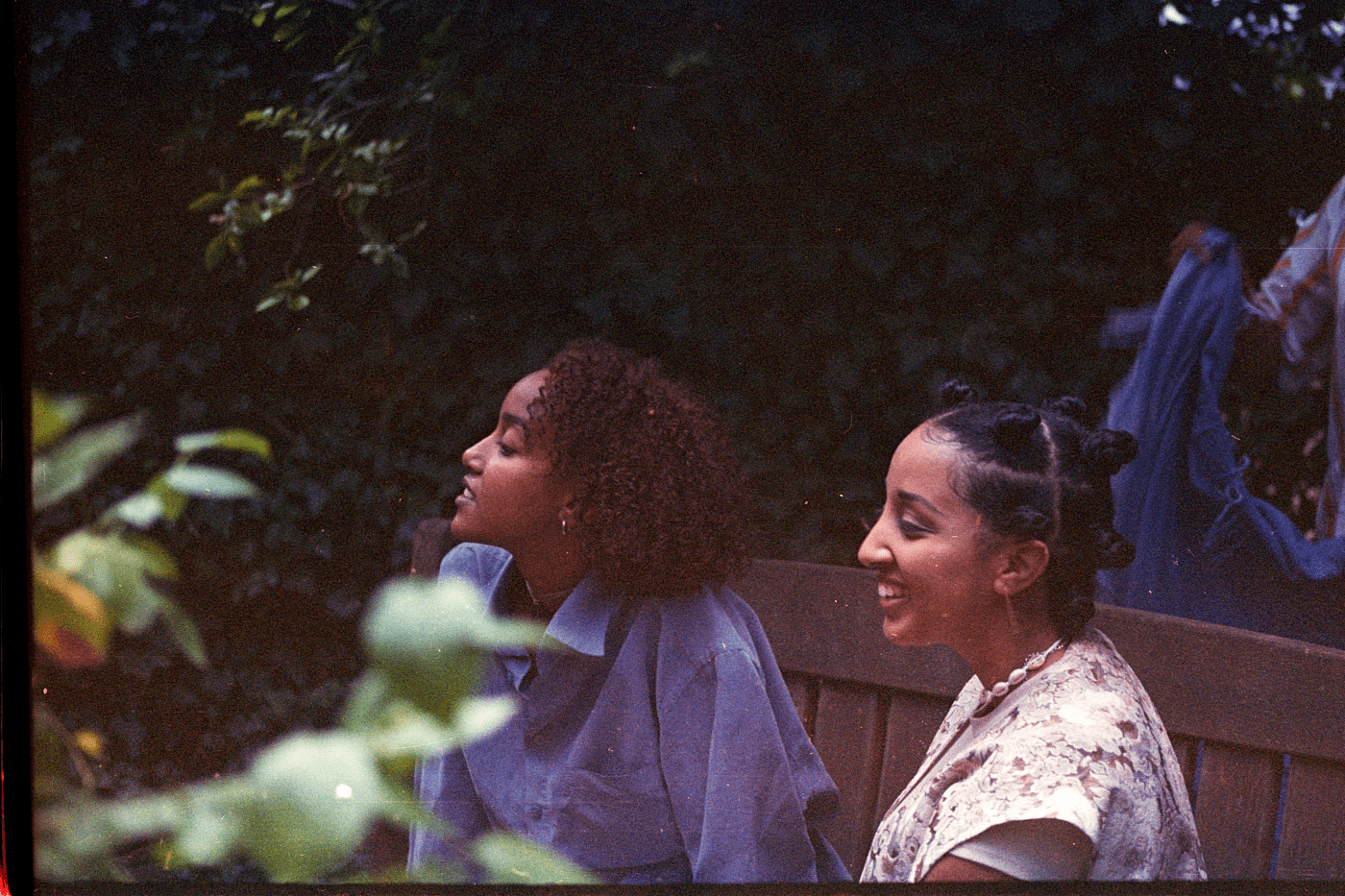“schwarz is exemplary of the kind of mindful discussions that should be taking place in Black communities: discussions where nobody is shouting above anyone else to declare that the racism they’ve experienced is more damaging than what someone else has faced; where people are free to speak their piece and be heard; and discussions underpinned by empathy and active efforts towards understanding are truly safe spaces.” – Memuna Konteh for Fringe of Colour 2021
schwarz has been screened at Fringe of Colour, Vielfalt Festival, Black Reels Film Festival, Interkulturelle Woche Frankfurt, Oyoun Berlin, Antirassismus Filmtage Fürth, amongst others. To make it more accessible as part of a growing Afro-German archive, we have made the film available to watch for free on Vimeo.
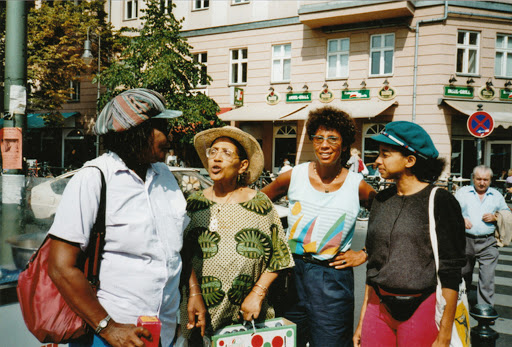
When George Floyd’s murder re-ignited Black Lives Matter protests in the U.S. and around the world in May 2020, I was living in my mother’s house in Nuremberg, Germany, for the first time in five years. I felt lost and without a community to experience and welcome this moment in all its pain and possibility. With the pandemic raging, I had been reading about the disproportionate threat of COVID-19 on Black communities, alone with my worries about doctors’ biases towards Black people. Asking myself “What does it mean to be Black German in a pandemic?” required me to confront myself in this new-old context that I had escaped from years ago. The possibility of catching corona ended years of carefully compartmentalising my self. I turned to books and the internet. Looking back, it seems ridiculous how surprised I was to find a world of organising, literature and film that had been documenting Black German identity and history for decades.
The term Afro-German was coined by a group of women around the poets, educators and activists Audre Lorde and May Ayim. Alongside Katharina Oguntuye and Dagmar Schultze, Ayim co-authored the first Afro-German book Showing Our Colours: Afro-German Women Speak Out (1986). They traced African-German histories and collected the first published testimonials of Black German women living in a Fatherland that constantly questioned their right to belong. In the documentary “Audre Lorde: The Berlin Years 1984 – 1992”, Schultze shows how Lorde’s presence in Berlin gave rise to the New Black Movement. For the first time, Black German women came together and explored the possibilities of community and intersectional activism through language and knowledge production. Hoping to create a future in which Black Germans would no longer have to justify their existence or explain their lived realities to an ignorant white majority. Three decades later, we have not yet arrived in the future they envisioned. Black German conversations never really left the niche in which they were forced.
So – I invited childhood friends to my garden and asked them about Black Life in Germany. Their insights became my documentary schwarz, a glimpse into conversations amongst black Germans from Nuremberg, Bavaria. The film features 17 protagonists between the age of 16 and 31, who speak about their preferred self-definitions, their experiences with everyday racism and the 2020 Black Lives Matter protests – do they feel represented and appreciated in German society? Who inspires them? What is it that makes them black, or Black?
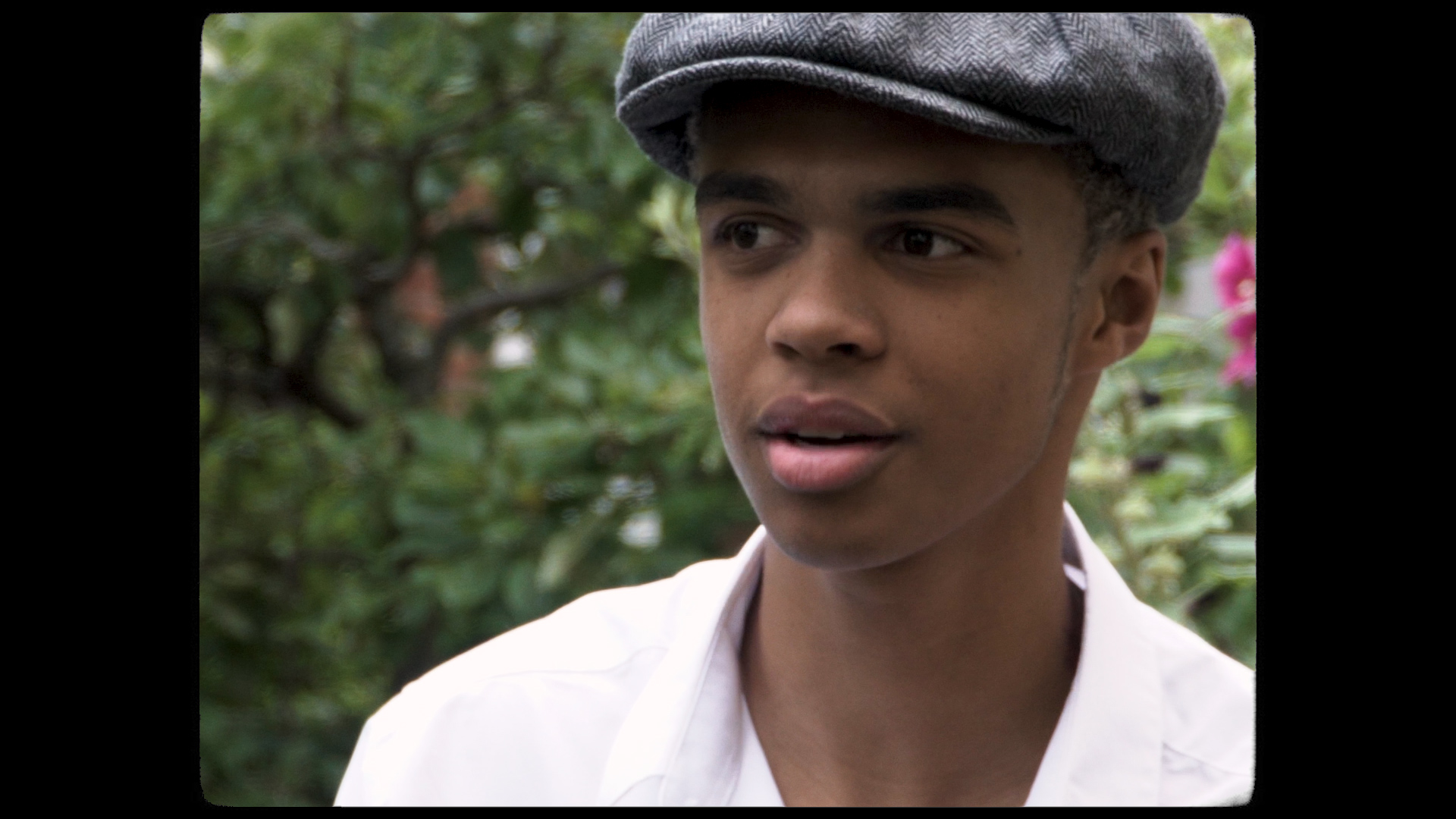
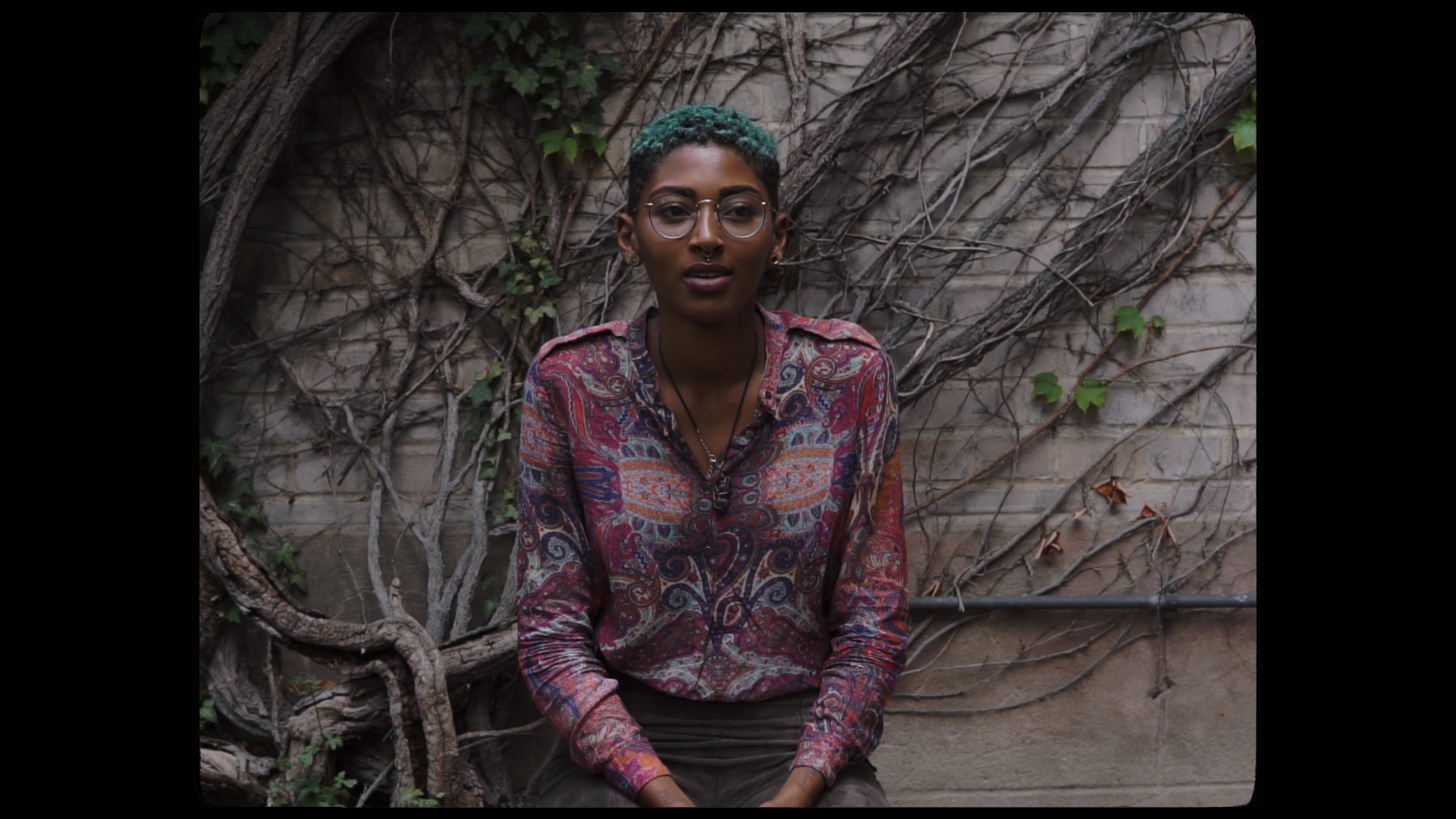
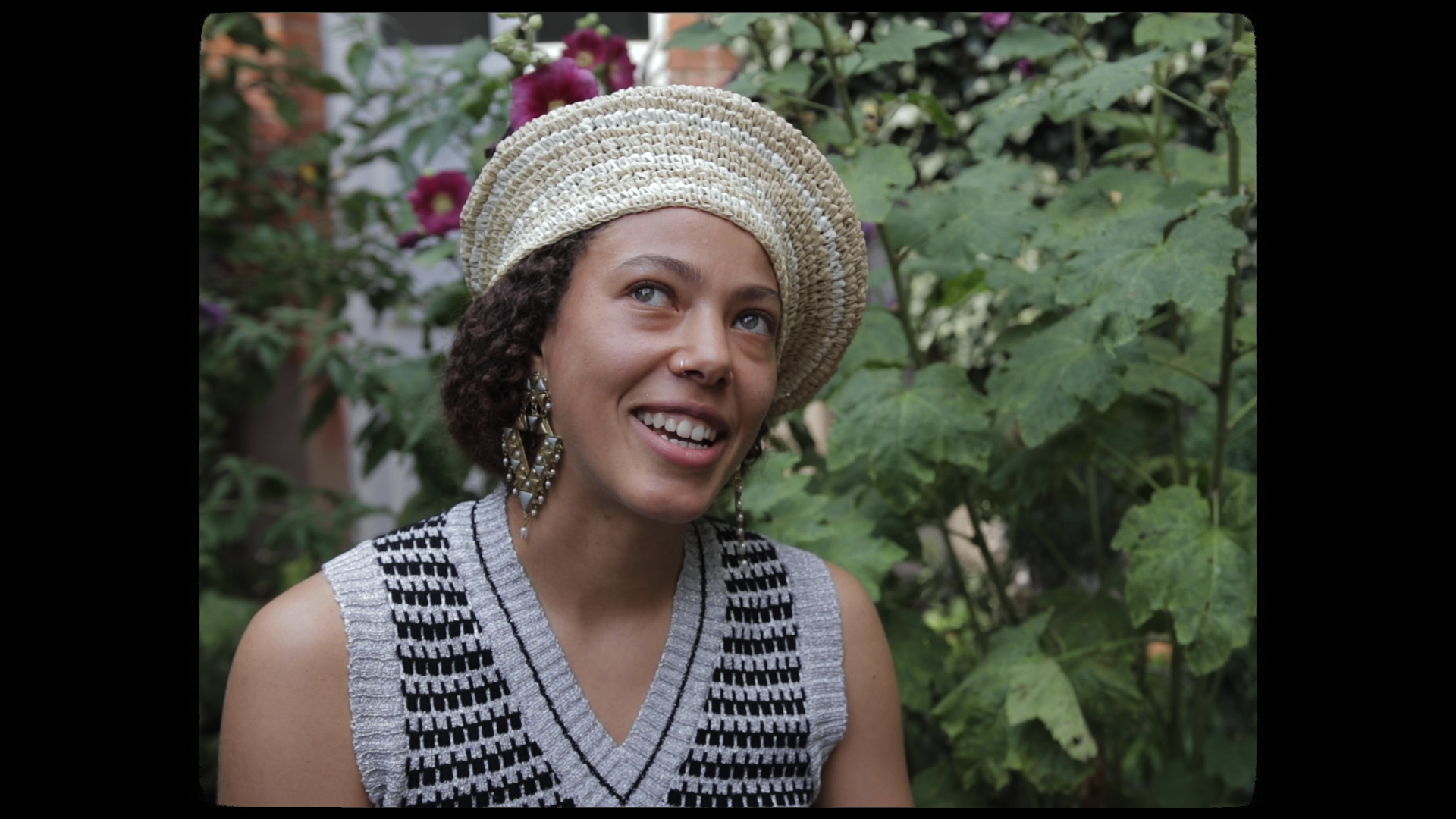
About the film
schwarz is a personal approach to contemporary black German experiences. Through locating the personal within wider society, it explores the multitude of meanings that are encompassed in the word schwarz and the political identity Schwarz. It discusses belonging, society and heritage on a human, non-intellectual, non-judgemental level. schwarz does not present a set of solutions or answers; it is an open conversation that does not explain, nor justify.
Reflections and opinions are presented alongside poetry and quotes by Black feminist thinkers May Ayim, Audre Lorde and Stefanie Lahya Aukongo. Remembering their work, we pay respect to the efforts of Black activists who came before us. The contemporary relevance of their poetry highlights the longevity and extent of Germany’s socio-political problems.
In the current German media and political landscape where panels contend to invite one (type of) black person and accept their opinions as a truth for a whole, extremely diverse, group, schwarz pushes against these simplistic depictions of Black Life. Marginalised people deserve to be acknowledged in their complex individuality, rather than being subsumed under a homogeneous group.
Too often, black narratives are limited to depicting black humans as powerless victims, as angry, or as sad. The behind-the-scenes footage used in schwarz mirrors a reality in which black people live and radiate beauty and happiness despite societal and structural obstacles. We suffer from racism and fight various forms of oppression; we nonetheless lead happy lives. schwarz de-normalizes violence in critical conversations. In doing so, the film reverses the white gaze as the mainstream perspective and discusses black German life from a black perspective.
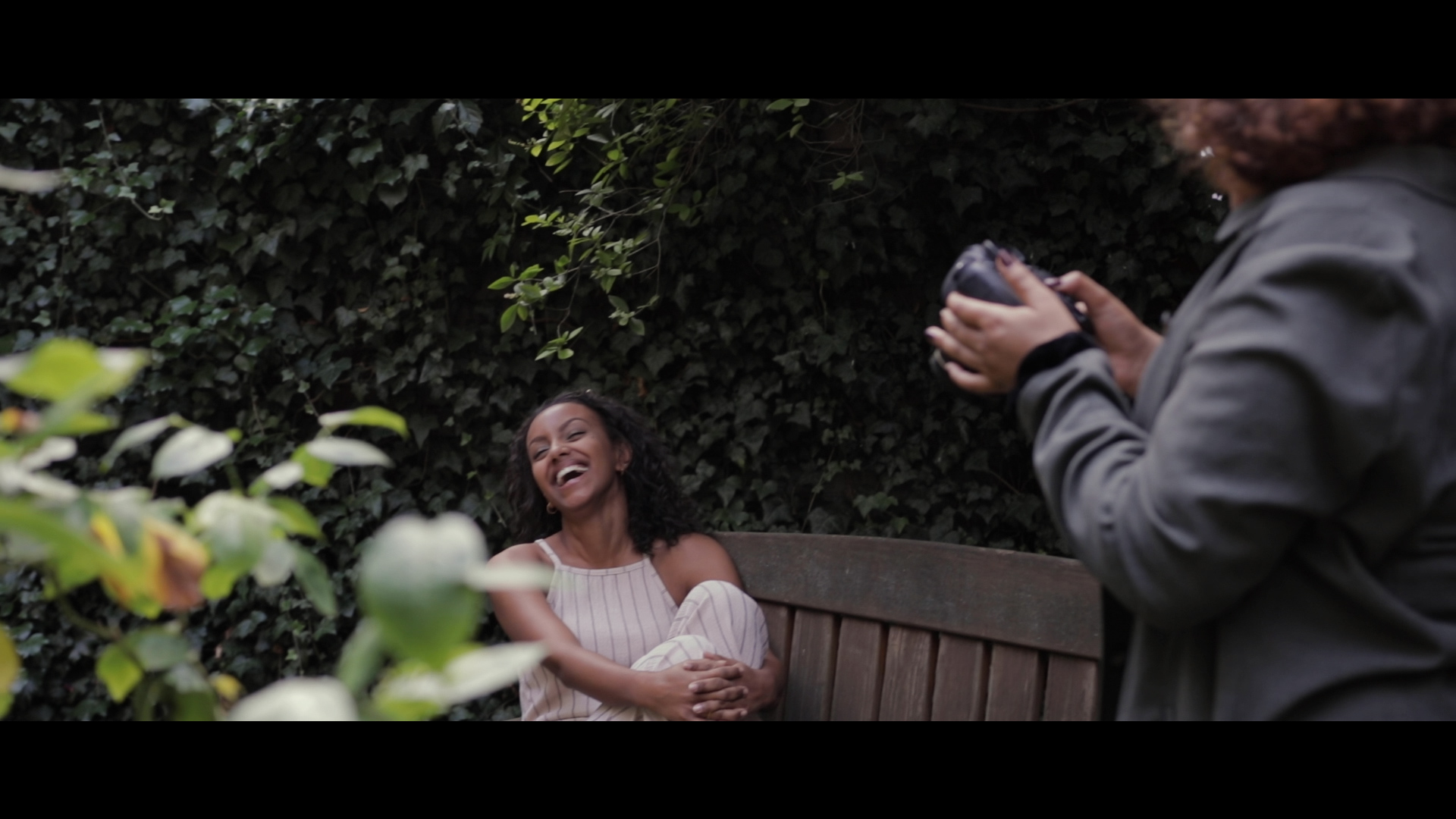

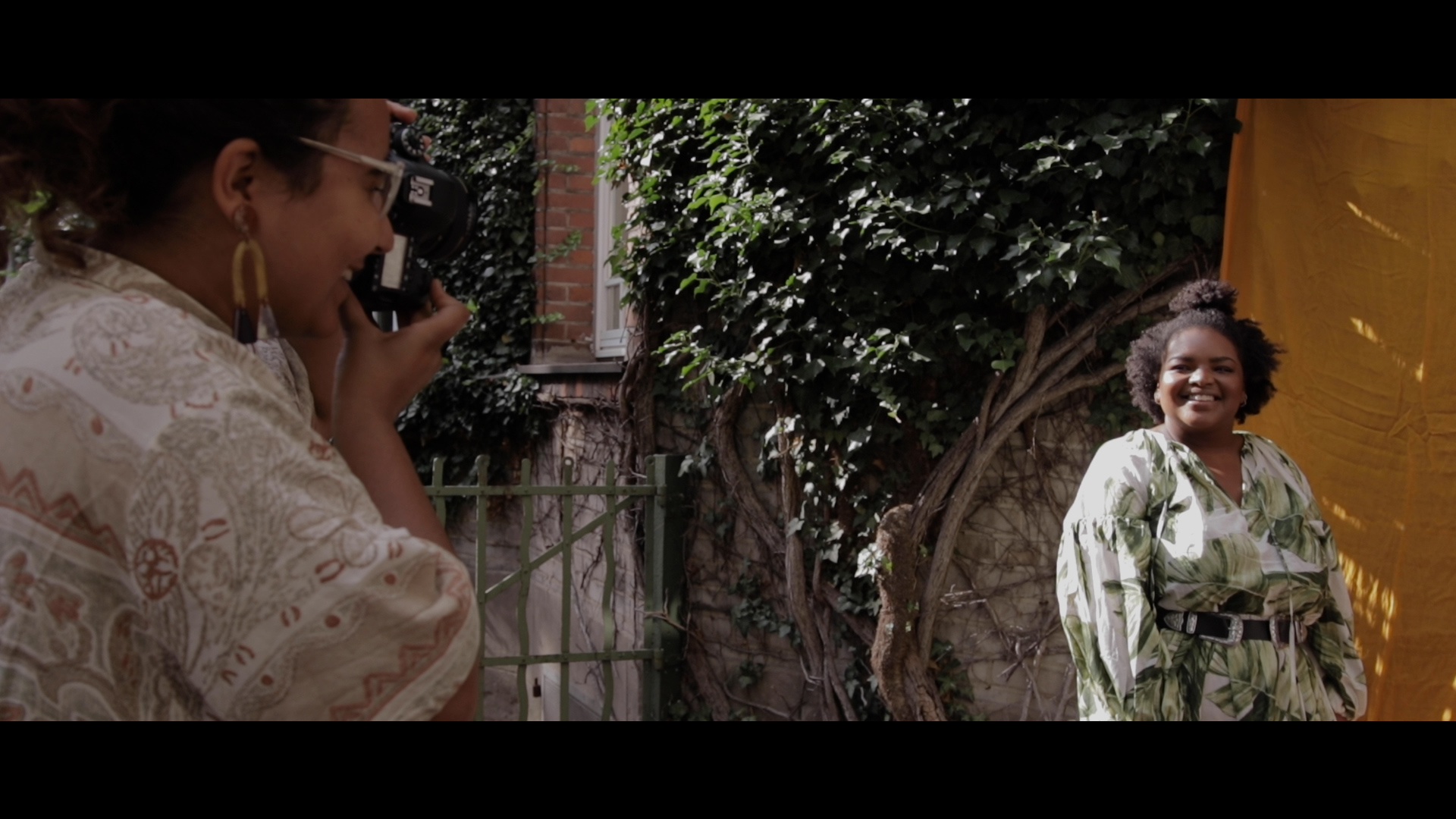
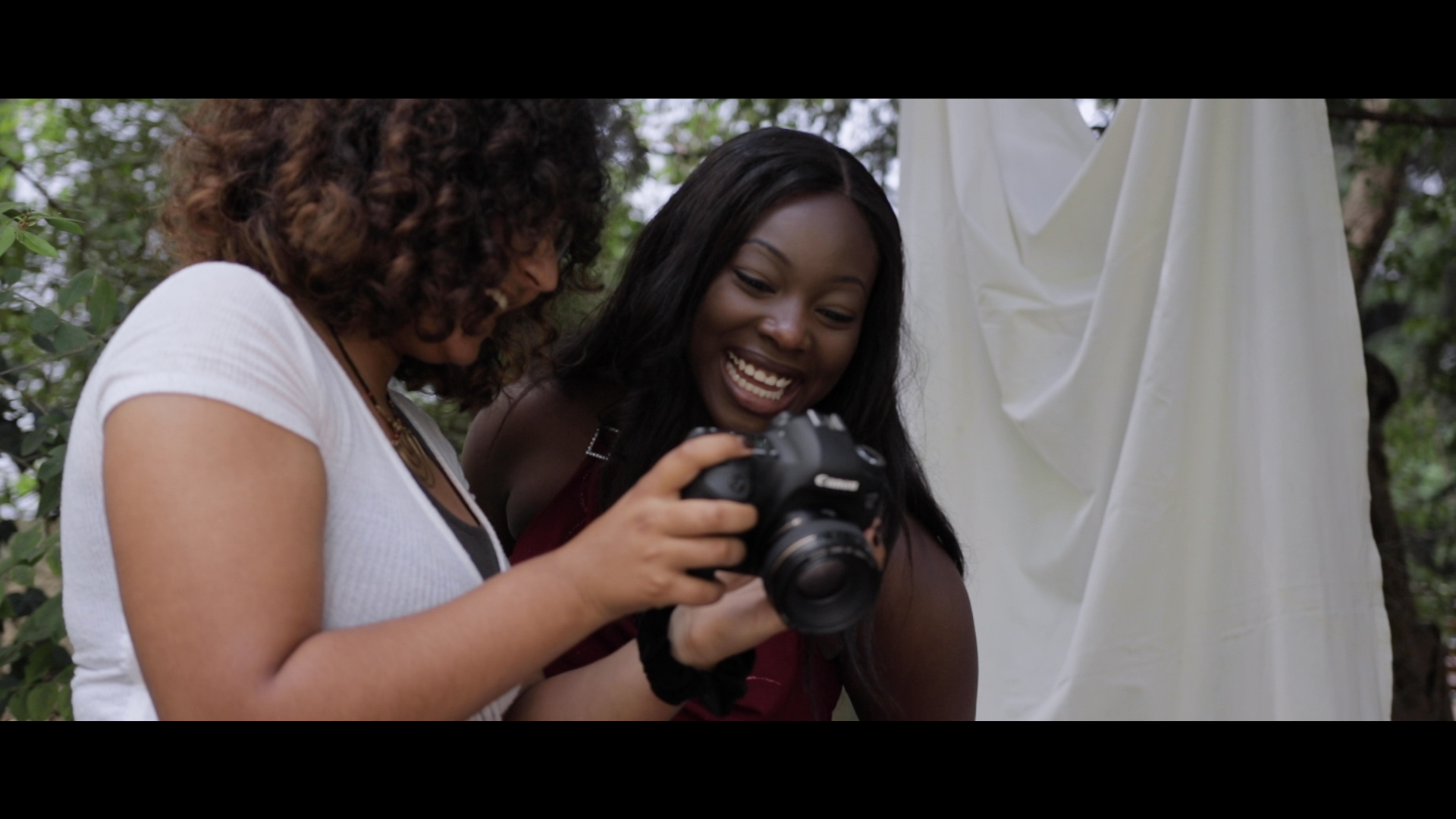
schwarz is a time document that shows the birth of a new community in Nuremberg. Amidst the pandemic and Black Lives Matter protests, schwarz brought young black people together and invited them to converse, make friends and create a support system for themselves and each other.
Black Germans have b-e-e-n creating mirrors for our lived experiences, even though we were not raised with a sense of collectivity or a unifying self-identification. We are having these conversations now and openly, and schwarz proudly sits amongst creative documents that testament our life and existence. Audre Lorde’s and May Ayim’s legacies gave name to Afro-Germany, a term I have claimed ever since Lorde said that hyphenated people are the “last chance for Europe to learn how to deal with difference creatively”. Understanding myself as a hopeful possibility, even a necessity, for European society is the most self-affirming identity I can give myself. At 24, I began to explore the symbolic power of my hyphen, and I found a community to do it with me.
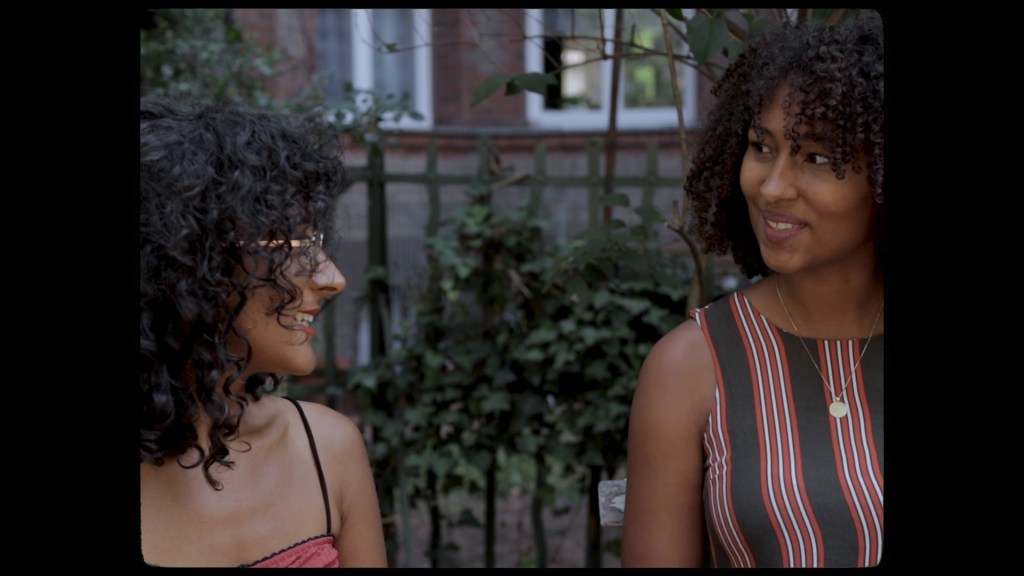
I wrote about this experience in my article “Running (from) home“, published on Meeting of Minds on September 16 2020. I also gave a presentation on Afro-German history which you can listen to here.
Memuna Konteh wrote a moving and thoughtful response to schwarz for Fringe of Color.
Words by Amuna Wagner
Header image by Alexander Sura

